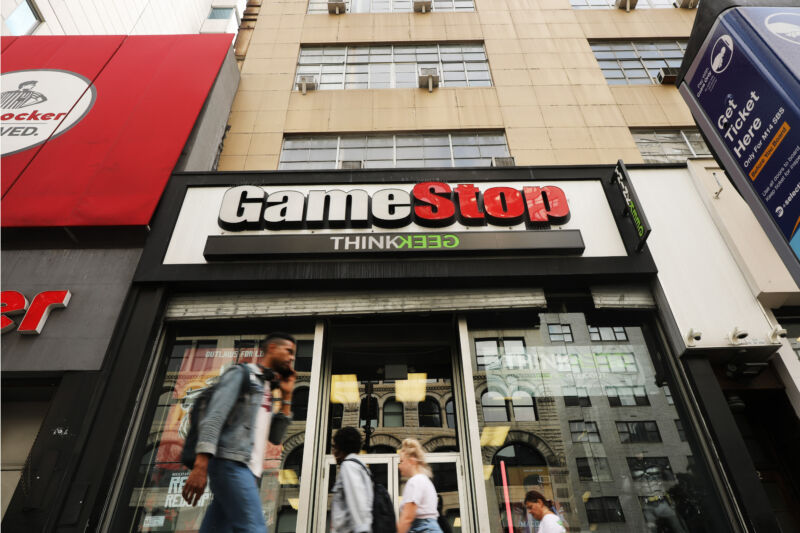Why didn’t GameStop sell some of its inflated stock during the bubble?

Enlarge / Hi, yeah, how much can I get by trading in this slighty used share of GameStop stock? (credit: Getty Images)
At the beginning of the year, the stock market as a whole valued video game retailer GameStop at roughly $1.15 billion. By the close of trading on January 27, at the height of the speculative mania surrounding the stock, that total value had surged to about $22.6 billion. Today, GameStop's market cap has sunk back down to a more reasonable $3.34 billion.
You'd think GameStop would have tried to take advantage of this brief market mania, cashing in on its suddenly hot brand by trading inflated stock for real money that could help its struggling brick-and-mortar business. But a new Reuters report cites "three people familiar with the US video game retailer's internal deliberations" in detailing the logistical and regulatory hurdles that prevented that from happening.
Insider red tapeThe core of GameStop's quick cash-in problem was the SEC's insider trading rules, which define a specific "trading window" schedule outlining when company insiders can and can't trade on quarterly earnings results that haven't yet been made public.
Read 9 remaining paragraphs | Comments